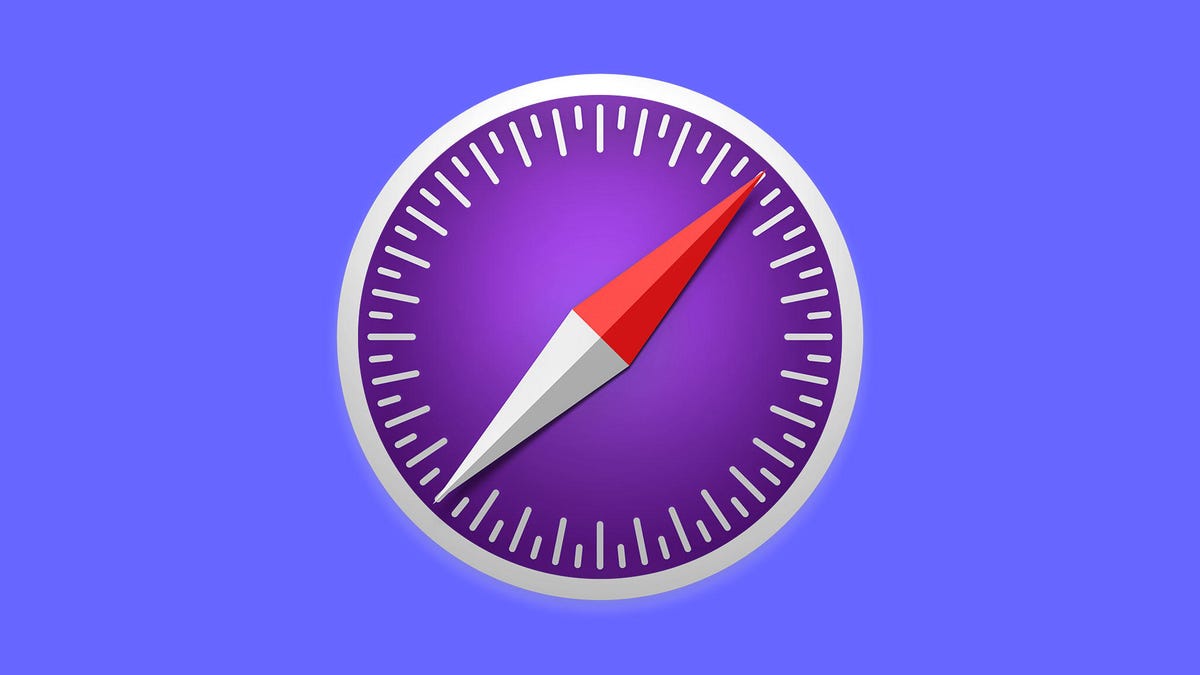Apple has a new way to crack down on ads tracking you in Safari
And it's proposing the plan as a standard all browsers should embrace.

A new standard to keep advertisers from tracking you across the internet is built into Apple's test browser for developers, Safari Technology Preview.
Apple has built new browser technology designed to let advertisers figure out when their ads successfully convinced you to buy something -- but without tracking you across the internet and harvesting personal details to do so.
The plan, called Privacy Preserving Ad Click Attribution and detailed Wednesday, is now built into Apple's test browser for developers, Safari Technology Preview 82. And Apple is proposing it become something all browsers can embrace as a standard.
"As more and more browsers acknowledge the problems of cross-site tracking, we should expect privacy-invasive ad click attribution to become a thing of the past," said John Wilander, the Apple programmer behind Safari's earlier Intelligent Tracking Prevention project, in a blog post about the new technology.
The move increases Apple's pressure on tech companies to protect privacy -- and spotlights its ability to profit from that push, in contrast to giants like Facebook and Google whose businesses rely on online ads.
Apple angered the ad tech industry with its earlier Intelligent Tracking Prevention technology, which reins in cookies -- especially third-party cookies that ad companies place on websites they don't operate.
Facebook and Google didn't immediately respond to requests for comment.
Today's ad technology often tracks you as you go from one website to another, a process that relies on small text files called cookies that an advertiser or website can instruct your browser to store. Cookies can record that you saw a particular ad on one site and then bought the advertised product on another site, information that's very useful for advertisers but that can harvest huge amounts of data about online behavior.
Apple's approach, in comparison, measures whether ads were successful within the browser instead of leaving it to advertising companies that track you online. It reports its result, but with a randomized delay between 24 and 48 hours so advertisers can't track people by pinning down the timing of their actions.
"Online ads and measurement of their effectiveness do not require Site A, where you clicked an ad, to learn that you purchased something on Site B," Wilander said. "The only data needed for measurement is that someone who clicked an ad on Site A made a purchase on Site B."
No peeking, Chrome
One notable aspect of Apple's proposal is that it would keep the browser maker from knowing what ad activity the browser is measuring. "The browser vendor should not learn about the user's ad clicks or conversions," Wilander said. That would keep Google from knowing what its billion-plus Chrome users are up to.
Firefox maker Mozilla gave Apple's idea a warm reception and said it'll participate in discussions about it.
"We believe ad click attribution is an important use of cross-site measurement on the web today. In fact, we've identified it as such in our antitracking policy," said Steven Englehardt, Firefox privacy engineer. "We'd like to explore solutions that allow for it without putting users' privacy at risk, and believe Apple's proposal is one possible solution."
Privacy has become a high priority in tech with Facebook's Cambridge analytica scandal, the growing use of facial recognition, the abundance of digital traces we leave online and the unceasing data breaches and leaks. "The future is private," Facebook Chief Executive Mark Zuckerberg declared at the company's developer conference in April.
Millions of people use ad blockers in their browsers, but browsers are getting more assertive about blocking tracking, too. Brave blocks all ads and trackers by default, Mozilla has begun a shift to blocking some trackers, and Safari has its Intelligent Tracking Prevention. Earlier this month, Google's Chrome team announced its own effort to curtail tracking using cookies.
Do Not Track lives on, sort of
An effort called Do Not Track, through which you could set your browser to tell website publishers and advertisers that you didn't want to be tracked online, fizzled in part because advertisers didn't like it. Newer browser approaches to dealing with tracking are taking unilateral action.
The Interactive Advertising Bureau, which represents online advertisers and publishers, doesn't like what's happening, calling for clear federal regulations governing personal data -- an idea it calls "Do Not Track Plus."
"The work being done by big platforms and browser makers is useful, because it will contribute to a federal or global solution. But it won't substitute for it," IAB Chief Executive Randall Rothenberg and public policy leader Dave Grimaldi said in a May blog post. "We shouldn't have a thousand different methods for managing digital privacy, confusing consumers and sowing chaos among businesses. And we shouldn't make consumers push endless consent buttons on websites and apps, or burrow deep into browser tools to manage who's doing what with their data."
Originally published May 22, 8:38 a.m. PT.
Update, 11:29 a.m.: Adds comment from IAB and Mozilla and further background.

